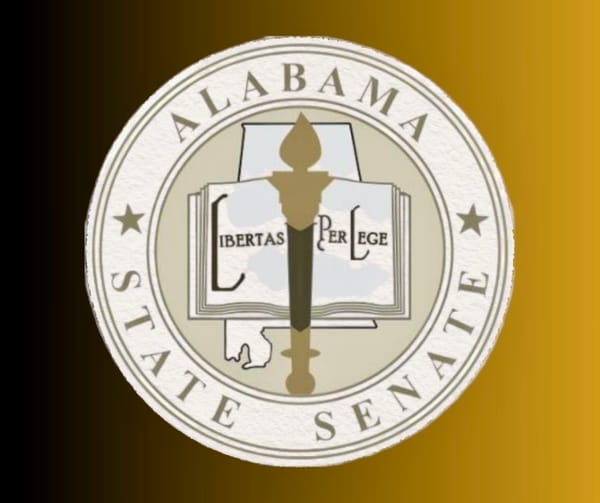Summaries of All Vaccine, Vaccine Exemption and Related Bills in the Current AL Legislative Session
Eight bills pertaining to vaccines and vaccine exemptions

As the last week of the legislative session approaches, a number of important bills will be competing for increasingly limited time and attention from members of the Legislature. Several of these bills deal with vaccines, vaccine exemptions and related topics.
A search of ALISON (Alabama Legislative Information System Online) done Saturday, May 3 returned seven bills identified by the search term “vaccine.” A search for “mandate” returned no bills, while “mask” returned only HB559, which does not relates to loitering, not medical issues. A search for “conscience” also returned a single bill, HB520.
As ALPolitics.com has previously done for hemp and cannabis-related bills, summaries of these eight bills—HB520 and seven “vaccine” bills—are presented here in the hope that they prove useful in the days to come.
Alabama House Bill 520 (HB520), introduced by Representative Ernie Yarbrough (R-Trinity) is titled the “Alabama Conscientious Right to Refuse Act.” The bill seeks to protect individuals from discrimination based on their refusal to accept certain medical interventions—such as vaccines, gene-based therapies, or facial coverings—when refusal is grounded in conscience, including religious or moral beliefs.
Key Provisions
- Employment Protections:
Employers, including government and private entities, may not refuse to hire, discharge, or otherwise discriminate against individuals who decline specific medical products (e.g., vaccines, RNA-based drugs, gene editing products) due to reasons of conscience. - Public Accommodation:
Businesses and service providers may not deny entry or service based on an individual's refusal to use facial coverings or receive medical products for reasons of conscience. - Healthcare and Insurance Protections:
Health care providers, hospitals, and health insurance companies are prohibited from denying care or coverage based on an individual's refusal of certain medical interventions—except that surgical masks may still be required during procedures. - Occupational Licensing Protections:
Licensing boards and commissions cannot deny or revoke professional licenses based on vaccine status or similar medical refusals rooted in conscience. - Legal Remedies and Enforcement:
- Individuals can seek injunctive relief (court orders) if discriminated against under the provisions of this act.
- Courts may award attorney fees and damages to prevailing plaintiffs.
- The Attorney General is empowered to enforce the law and bring civil action against violators, or to defend entities penalized by federal mandates that contradict the act.
- Definition of "Conscience":
Broadly defined to include religious, moral, or ethical convictions held by individuals. - Effective Date:
October 1, 2025
Legislative Status
HB520 was introduced on April 3rd. It was referred to the House Health Committee, where it awaits action by the Committee.
Support and Opposition
Supporters' Positions
- Religious Freedom and Medical Autonomy Advocates:
Supporters argue the bill defends individual liberty, particularly the right to make personal medical decisions without fear of coercion or economic retaliation. They view it as a necessary counterbalance to mandates that arose during the COVID-19 pandemic. - Civil Liberties Organizations:
Some proponents frame the bill as protecting freedom of conscience and bodily autonomy, essential components of personal freedom.
Opponents' Positions
- Public Health Officials and Medical Associations:
Critics warn the bill could erode essential public health measures by legitimizing refusal of basic health protocols, potentially endangering others in shared spaces such as hospitals, schools, and workplaces. - Business and Employer Groups:
Opponents express concern that the bill may restrict their ability to implement workplace safety protocols and respond effectively in future public health emergencies.
Alabama House Bill 2 (HB2), introduced by Representative Chip Brown (R-Mobile), proposes amendments to Section 22-8-4 of the Code of Alabama 1975, specifically concerning minors' consent to vaccinations.
Key Provisions
- Parental Consent Requirement: The bill mandates that unemancipated minors must obtain written consent from a parent or legal guardian to receive any vaccination.
- Exceptions: The requirement does not apply if the minor is:
- Not dependent on a parent or legal guardian for support; or
- Living apart from their parents or another individual acting in loco parentis.
- Effective Date: If enacted, the law would take effect on October 1, 2025.
Legislative Status
HB2 was introduced February 4 and referred to the House Judiciary Committee. It received favorable report from the Judiciary Committee and was sent to the full House, where it passed by a vote of 92 YEA to 5 NAY, with 4 Abstains on February 11.
The bill was referred to the Senate Judiciary Committee on February 12. It received a favorable report from the Senate Judiciary Committee on March 5, and was sent to the full Senate, where it awaits further action.
Support and Opposition
Supporters' Positions
- Rights Advocates: Supporters argue that the bill reinforces parental authority in medical decisions, ensuring that parents are involved in their children's healthcare choices.
- Privacy Concerns: Some proponents believe that requiring parental consent protects minors from making uninformed decisions about vaccinations.
Opponents' Positions
- Public Health Officials: Critics contend that the bill could hinder public health efforts by making it more difficult for minors to access vaccinations, potentially leading to lower immunization rates.
- Youth Advocacy Groups: Opponents argue that the bill may disproportionately affect vulnerable minors who may not have supportive guardians, thereby limiting their access to necessary healthcare services.
Alabama House Bill 316 (HB316), introduced by Representative Mack Butler (R-Rainbow City), proposes amendments to the state's food and drug regulations to include foods containing vaccines or vaccine materials within the definition of "drug" and to establish specific labeling requirements for such foods.
Key Provisions
- Expansion of "Drug" Definition: The bill amends Section 20-1-20 of the Code of Alabama 1975 to include foods that contain vaccines or vaccine materials within the definition of "drug." This means that any food product containing vaccine substances would be regulated under the same standards as medicinal drugs.
- Definition of "Vaccine or Vaccine Material": The bill defines "vaccine or vaccine material" as any substance intended to stimulate antibody production and provide immunity against a disease, which must be authorized or approved by the U.S. Food and Drug Administration (FDA).
- Labeling Requirements: Under the proposed amendments to Section 20-1-25, any food containing vaccine materials must be conspicuously labeled with the words "Contains Vaccine or Vaccine Material." The label must be in a uniform font size and prominence and must specify that the article is classified as a drug. Failure to comply with these labeling requirements would render the product misbranded under Alabama law.
- Effective Date: If enacted, the law would take effect on October 1, 2025.
Legislative Status
HB216 was introduced on February 20 and referred to the House Health Committee, where it awaits action by the Committee.
Support and Opposition
Supporters' Positions
- Consumer Transparency Advocates: Supporters argue that the bill enhances consumer rights by ensuring transparency about the contents of food products, allowing individuals to make informed choices, especially those with concerns about vaccine ingredients.
- Religious and Personal Belief Groups: Proponents believe the legislation safeguards against potential violations of personal or religious beliefs by clearly identifying foods containing vaccine materials.
Opponents' Positions
- Public Health Officials: Critics contend that the bill could contribute to vaccine misinformation and hesitancy by implying that vaccine materials in foods are harmful, despite scientific consensus on their safety.
- Food Industry Representatives: Opponents argue that the labeling requirements could be burdensome for manufacturers and may lead to unnecessary alarm among consumers, potentially affecting sales and public perception.
Alabama House Bill 367 (HB367), introduced by Representative Mack Butler IR-Rainbow City), seeks to restrict the use of public funds by governmental entities and county health departments for vaccine promotion.
Key Provisions
- Prohibition on Vaccine Advertising: Governmental entities, including state departments, agencies, public institutions of higher education, and county health departments, are prohibited from using public funds to advertise or promote vaccines.
- Definition of Advertising: The bill defines "advertising" as any communication intended to promote the sale, distribution, or use of vaccines, encompassing mediums such as television, radio, print, digital media, or public service announcements.
- Exceptions:
- Printed educational materials distributed directly to patients within public health care settings, provided they offer balanced information about vaccines, including both risks and benefits. These materials must also include information about state vaccine requirements, exemptions, and the Vaccine Adverse Event Reporting System (VAERS).
- Communications explicitly required by federal law or regulation.
- Enforcement and Penalties:
- The Attorney General is authorized to investigate reported violations.
- If a violation is confirmed, the Attorney General will determine the amount of public funds expended unlawfully and report this to the appropriate legislative committees.
- The Legislature is required to reduce the subsequent fiscal year's appropriation to the violating entity by the amount spent in violation.
- For independent county health departments, the respective county commission must reduce funding by the amount determined.
Legislative Status
HB367 was introduced on February 27 and referred to the House State Government Committee, where it awaits further action by the Committee.
Support and Opposition
Supporters' Positions
- Fiscal Responsibility: Proponents argue that taxpayer funds should not be used to promote pharmaceutical products, emphasizing the need for fiscal responsibility and the prevention of government-funded marketing for private industry.
- Transparency and Informed Consent: Supporters advocate for balanced information regarding vaccines, including potential risks, to ensure individuals can make informed decisions.
Opponents' Positions
- Public Health Concerns: Critics contend that restricting vaccine promotion could undermine public health initiatives, particularly efforts to increase vaccination rates and prevent disease outbreaks.
- Misinformation Risks: Opponents warn that limiting government communication about vaccines may lead to increased misinformation and decreased public trust in health recommendations.
Alabama House Bill 444 (HB444), by Representative Mack Butler IR-Rainbow City), seeks to mandate that religiously affiliated private and church schools in Alabama accept religious exemptions to vaccine and disease testing requirements.
Key Provisions
- Mandatory Religious Exemptions: Religiously affiliated private and church schools must accept religious exemptions from vaccine and disease testing requirements for student enrollment or attendance.
- Parental Declaration: A parent or guardian can submit a written statement declaring that vaccinations or testing conflict with their religious beliefs. No additional explanation, third-party certification, or approval is required.
- Penalties for Non-Compliance:
- Schools failing to accept religious exemptions will lose their tax-exempt status and become subject to corporate income and ad valorem taxes.
- Such schools will be ineligible to participate in the CHOOSE Act program and cannot receive funds from the CHOOSE Act Fund.
- Effective Date: If enacted, the law would take effect on October 1, 2025.
Legislative Status
HB444 was introduced on March 18 and referred to the House Health Committee, where it awaits further action by the Committee.
Support and Opposition
Supporters' Positions
- Religious Freedom Advocates: Supporters argue that the bill protects religious liberties by ensuring that parents can make medical decisions for their children based on their faith without institutional barriers.
- Parental Rights Groups: Proponents believe the legislation reinforces parental authority over children's health decisions, especially concerning vaccinations and disease testing.
Opponents' Positions
- Public Health Officials: Critics contend that the bill could undermine public health efforts by increasing the number of unvaccinated students, potentially leading to higher risks of disease outbreaks.
- Educational Associations: Opponents argue that penalizing schools financially for enforcing health requirements could deter institutions from implementing necessary health measures, affecting overall student safety.
Alabama House Bill 503 (HB503), introduced by Representative Mack Butler (R-Rainbow City) seeks to expand and clarify vaccine and disease testing exemptions for students in public K-12 schools and public institutions of higher education.
Key Provisions
- K-12 Religious Exemptions: Parents or guardians can exempt their child from vaccination or disease testing requirements by submitting a written statement citing religious objections. No additional explanation, third-party certification, or approval is required.
- Higher Education Exemptions:
- Religious Exemption: Students may submit a written statement declaring that vaccination or testing conflicts with their religious beliefs. No further justification or approval is necessary.
- Medical Exemption: Students can provide a written certification from a competent medical authority stating they are exempt from vaccination or testing requirements.
- Effective Date: If enacted, the law would take effect on October 1, 2025.
Legislative Status
HB503 was introduced April 1 and referred to the House Health Committee, where it awaits further action by the Committee.
Support and Opposition
Supporters' Positions
- Religious Freedom Advocates: Supporters argue that the bill protects individual religious liberties by allowing students and parents to opt out of medical procedures that conflict with their beliefs without bureaucratic hurdles.
- Parental Rights Groups: Proponents believe the legislation reinforces parental authority over children's health decisions, especially concerning vaccinations and disease testing.
Opponents' Positions
- Public Health Officials: Critics contend that the bill could undermine public health efforts by increasing the number of unvaccinated students, potentially leading to higher risks of disease outbreaks.
- Educational Associations: Opponents argue that simplifying exemption processes may compromise the safety of the broader student population and complicate disease prevention strategies within educational institutions.
Alabama House Bill 519 (HB519), titled The Adaline Deal Act, was introduced by Representative Ernie Yarbrough (R-Trinity). The bill aims to prohibit discrimination in organ donation based on an individual's vaccination status.
Key Provisions
- Prohibition on Conditioning Organ Donation: Hospitals, transplant centers, procurement organizations, health insurance providers, physicians, and other healthcare providers are prohibited from conditioning the donation or receipt of an anatomical gift on the donor's or recipient's vaccine status.
- Definition of Vaccine: The bill broadly defines "vaccine" to include any biologic, DNA-based product, immunization, gene editing technology, mRNA-based product, or injectable drug used to prevent or treat infectious diseases.
- Enforcement and Penalties:
- The Attorney General is authorized to enforce the provisions of this act.
- For violations, the Attorney General may seek injunctive relief and impose a fine of $50,000 against the offending entity or individual.
- Effective Date: If enacted, the law would take effect on October 1, 2025.
Legislative Status
HB519 was introduced April 3 and referred to the House Health Committee, where it awaits further action by the Committee.
Support and Opposition
Supporters' Positions
- Medical Freedom Advocates: Supporters argue that the bill protects individual rights by ensuring that organ donation decisions are not influenced by vaccination status, which they view as a personal medical choice.
- Religious and Personal Belief Groups: Proponents believe the legislation safeguards against potential discrimination based on religious or personal beliefs regarding vaccinations.
Opponents' Positions
- Public Health Officials: Critics contend that the bill could compromise transplant safety protocols, as vaccination status can be a critical factor in assessing the risk of infection and ensuring successful outcomes.
- Medical Associations: Opponents argue that restricting consideration of vaccination status may hinder medical professionals' ability to make informed decisions, potentially affecting the health of both donors and recipients.
Alabama Senate Bill 85 (SB85), the Alabama Vaccination Exemption Bill, was introduced by Senators Arthur Orr (R-Decatur) and Donnie Chesteen (R-Geneva). The bill aims to broaden and simplify the process for obtaining religious exemptions from vaccination and disease testing requirements for students in public K-12 schools and public institutions of higher education.
Key Provisions
- K-12 Religious Exemptions:
- Parents or guardians can exempt their child from vaccination or testing requirements by submitting a written statement citing religious objections.
- The statement must be accompanied by a board-approved physical evaluation form or the Alabama High School Athletic Association's Preparticipation Physical Evaluation form completed within the previous 12 months.
- No additional explanation, third-party certification, or approval is required.
- Higher Education Exemptions:
- Students may claim a religious exemption by submitting a written statement, along with a physical evaluation form approved by the Alabama Commission on Higher Education completed within the previous 12 months.
- Students may also claim a medical exemption by providing a written statement from a competent medical authority certifying the exemption.
- No further justification or approval is necessary for either exemption.
- Effective Date: If enacted, the law would take effect on October 1, 2025.
Legislative Status
SB85 was introduced in February 4 and referred to the Senate Education Policy Committee. The bill received a favorable report from the Committee and was sent to the full Senate on March 5.
SB85 passed the Senate on April 3 by a vote of 26 YEA to 5 NAY. It was sent to the House and referred to the House Health Committee, which gave it a favorable report on April 30. It now awaits action by the full House.
Support and Opposition
Supporters' Positions
- Religious Freedom Advocates: Supporters argue that the bill protects individual religious liberties by allowing parents and students to opt out of medical procedures that conflict with their beliefs without bureaucratic hurdles.
- Parental Rights Groups: Proponents believe the legislation reinforces parental authority over children's health decisions, especially concerning vaccinations and disease testing.
Opponents' Positions
- Public Health Officials: Critics contend that the bill could undermine public health efforts by increasing the number of unvaccinated individuals, potentially leading to higher risks of disease outbreaks.
- Educational Associations: Opponents argue that simplifying exemption processes may compromise the safety of the broader student population and complicate disease prevention strategies within educational institutions.
Editor’s note: The above legislative summaries were created sequentially using a generative AI LLM model during a single session, using a standardized subject-neutral prompt. This method was chosen to maximize uniformity of results and minimize point-of-view and bias variations in the summaries. All bill summaries were generated from a link to the most recent version of the bills available on ALISON as of Saturday, May 3. No additional amendment links were included in the material summarized. Links to the bills and appropriate references are as provided.




